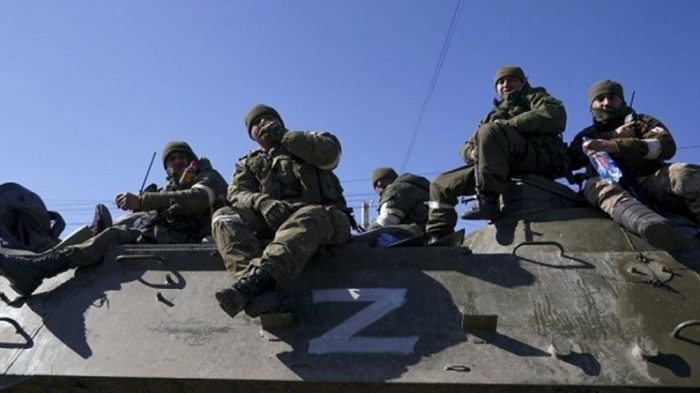Venice Festival screens controversial Russian war documentary that ignores occupiers’ crimes against Ukrainians
At the Venice International Film Festival on September 5, Russian-Canadian director Anastasia Trofimova unveiled her documentary, Russians at War, which portrays Russian soldiers in Ukraine as victims while glossing over their crimes against civilians. The film has sparked backlash for its one-sided narrative, with critics calling it Russian propaganda.


On 5 September, at the Venice International Film Festival, Russian-Canadian director Anastasia Trofimova presented her documentary Russians at War, which obscures occupiers crimes against Ukrainians, Reuters reports.
The filmmaker spent seven months with a Russian battalion in eastern Ukraine, creating the film to “challenge stereotypes.” According to her, in Russia, Moscow troops are regarded as heroes, while in the West, they are labeled as war criminals, says Ukrainska Pravda Life.
Despite the heroization of invaders, she acknowledges that most Russian soldiers go to war to kill Ukrainians to earn money. Some fight “for revenge” for their fallen comrades.
The film was screened outside the Venice Festival’s main competition. It tells the story of a medical team retrieving bodies from the battlefield, devastated when three members of their unit return in body bags.
However, the film does not depict the destruction or casualties caused by Russians to Ukrainians. One soldier in the film openly denies accusations of Russian forces committing war crimes. Trofimova herself stated that she had not witnessed any such crimes during the filming.
Guests of the Venice Film Festival, including Ukrainians, have already watched the film and shared interesting details about Russians at War and the director’s perspective.
At a press conference following the screening, Olha Zhurba, director of The Songs of the Slowly Burning Land, expressed her view, stressing that it is still too early to sympathize with the occupiers: “I think Russian filmmakers should … show the true face of the criminals in this war.”
Trofimova countered this, emphasizing that Russians should not lose connection with the world: “Since the start of the war on 24 February 2022, many bridges between Russia and the West have been destroyed. I would like this film to be, maybe not a bridge, but at least a rope that I can throw across to help us see each other.” With such statements, Trofimova, apparently, tries to equal Russian troops who came to eliminate civilians, as it was in Bucha or Irpin, with Ukrainians defending their land.
The producer of The Songs of the Slowly Burning Land, Daria Bassel, who is also a programmer for the Docudays UA International Documentary Film Festival, also watched the film. She pointed out that Trofimova’s film could mislead its viewers and only appears to be an anti-war film. In reality, it serves as an example of high-quality Russian propaganda.
Toward the end of the film, the Russian battalion is transferred to Bakhmut. Most of the film’s protagonists die, and their families mourn their deaths. In the final scenes, the director concludes that Russians are ordinary people manipulated by politicians for their own agendas.
Anastasia Trofimova has worked in media for over ten years, participating in various documentary projects in Canada, the Balkans, the Middle East, and Russia.
She has produced several documentaries for Russia Today, which was recently sanctioned by the US.
Related:
- Kirby says US upholds ATACMS missile restrictions for Ukraine, claiming 90% Russian aircraft beyond range
- Reuters: US close to agreeing on JASSM long-range missiles for Ukraine
- Ukraine presents target list, requests US lift ATACMS restrictions for deeper strikes in Russia
- Kuleba: Intercepting Russian missiles won’t make NATO countries party to the war
- Borrell pushes for unrestricted weapon use, condemns Russian attacks on Ukrainian civilians
You could close this page. Or you could join our community and help us produce more materials like this.
We keep our reporting open and accessible to everyone because we believe in the power of free information. This is why our small, cost-effective team depends on the support of readers like you to bring deliver timely news, quality analysis, and on-the-ground reports about Russia's war against Ukraine and Ukraine's struggle to build a democratic society.
A little bit goes a long way: for as little as the cost of one cup of coffee a month, you can help build bridges between Ukraine and the rest of the world, plus become a co-creator and vote for topics we should cover next. Become a patron or see other ways to support.



